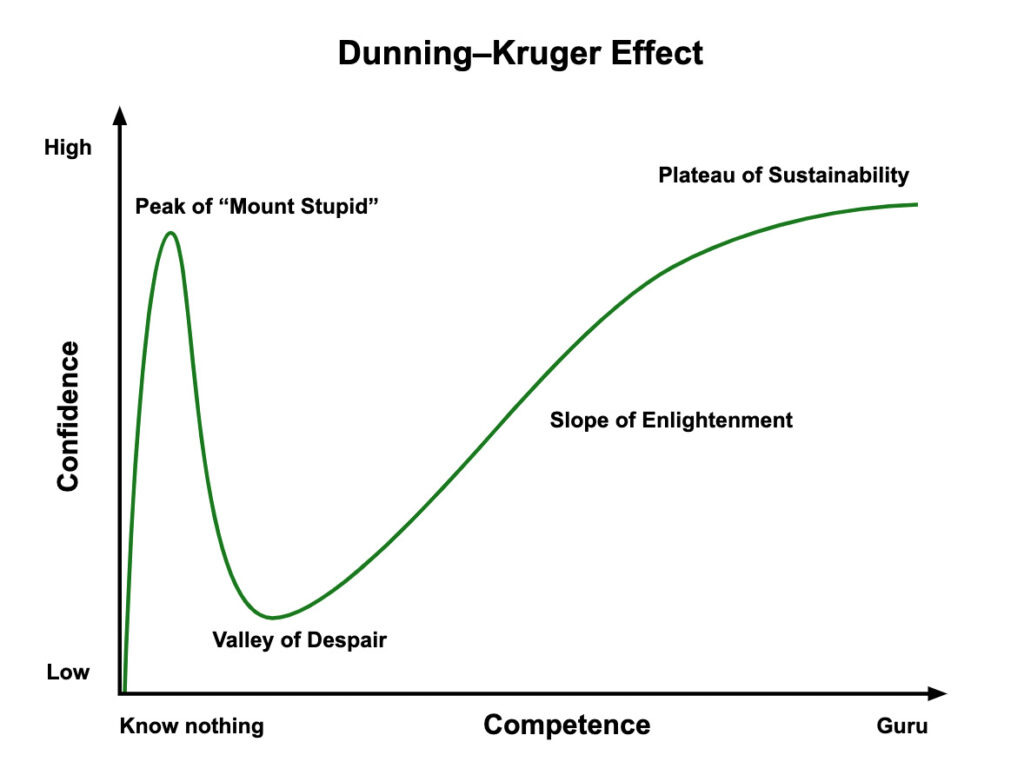Whether you’re a new blogger or an experienced one, you can easily end up overthinking what you’re doing. In this post we look at some signs you may be overthinking things, and what to do about that.
Signs you’re overthinking as a blogger
If you can identify with any of the following, you may be overthinking blogging:
01. You find yourself spending a lot of time on really small/unimportant tasks (like choosing a font for your email signature) because you find it difficult to make decisions.
02. You feel envious or depressed when visiting other people’s blogs.
03. You jump around completely different tasks without making any progress on any of them (like trying to simultaneously install plugins, implement an SEO strategy, monetize your site, start a new blog, learn about site speed, and browse new themes all at the same time).
04. You’re offsetting your endless to do list by asking for recommendations and quick fixes and shortcuts (e.g. magic plugins, AI tools), often without knowing, understanding or being confident with what you need and why.
05. You aren’t sure which tasks/skills to prioritize, or you procrastinate over the most important ones.
06. You change things up a lot because you feel restless (e.g. your colors, theme, categories, social media templates, even blog/social names).
07. You feel lost, overwhelmed, or not good enough (all totally normal, every single person has felt like that at some point!).
A quick tip for new bloggers
You’ve probably heard of the Dunning-Kruger effect, which looks at the stages people typically go through when trying to learn something new. At the beginning, you don’t realize how much you don’t know and how much work you need to put in to make progress. Once you do, you can experience all kinds of emotions: despair, deflation, overwhelm, sadness, maybe even anger. It’s pushing through this stage and resisting the urge to give up that really gives you momentum.

Credit: 忍者猫, CC0, via Wikimedia Commons
Image description: A chart showing the various stages of the Dunning-Kruger Effect, starting with Low Competence and Confidence/Knowing nothing, quickly peaking at High Confidence/Low competence, rapidly dropping into a Low Confidence/Competence “Valley of Despair,” followed by Competence and Confidence increasing more gradually over time to reach the “Guru”/Plateau of Sustainability stage.
It’s totally normal to go through these stages. But that’s easier said than done, right? The next section of this post looks at how you can make some positive changes and move forward.
Tips for beating overthinking
Whether you’re a new or seasoned blogger, there’s no one size fits all answer, but here are some things that may help you:
Narrow your focus
What’s one single thing you can do right now? A mountain climber looks at their next step, not the top of the mountain. If you find yourself jumping around between keyword research, site speed, site maintenance (such as updating plugins or emptying your spam).
Concentrate on your own lane
You can always, always find someone who is more successful than you, who has more followers than you, who is making more money than you, who has better hair than you, whatever it is you’re focusing on. The more you focus on other people and the less you focus on your own lane, the slower your progress will be.
The easiest way to get out of this trap is to shift your thoughts and actions from your competition to your audience. For example, if you find yourself checking out their Instagram, you could switch to asking your own audience what they need help with instead. Heck, make a sticky note reminder to help people or set a giving quote as your background if it helps. When everything you do is based around genuinely helping your reader/watcher/listener, you’re not thinking about yourself or what Super Blogger You Love To Hate is doing.
Separate emotion from action
Numbers don’t have feelings toward you; you don’t need feelings toward them. They are neutral; it’s you that attaches the meaning to them, and not every thought we have is true, accurate, or helpful. It’s also easy to fall into a trap where you’re thinking or consuming (e.g. reading posts, watching videos) instead of actioning tasks. This can fool you into thinking you’re doing a lot of work because technically you are spending a lot of time on these things. Examples of actions might be updating a post, doing keyword research, reviewing backlinks…any number of things where emotion isn’t needed. Deliberately picking tasks that have little to no emotion attached for you can help you break through a mindset barrier at times you’re struggling.
If you’re reading, watching or listening to content and thinking, “I already know that,” or “I’ve heard that before,” that’s a clear-cut sign that you need to reduce consumption and increase your action. If you’re still in a learning phase, that’s totally fine too, it’s just that you’re at an earlier stage where you may not be ready to act yet. Not sure what action to take? Just take the next closest action in its smallest form. For example, “I need to learn and implement SEO” is far too broad. You’re pressuring yourself to learn a whole career. However, reading a blog post on meta descriptions means you can easily then go and write or review your own meta descriptions.
Keep a learning diary
Unlike school, there’s no grades, exams, or regular chats about progress, and it’s easy to feel like you haven’t got anywhere. In fact, you’ve likely learned and improved far, far more than you realize or give yourself credit for. (This is true even for people who have been in the industry for decades). It doesn’t have to be anything complicated, just a couple of lines every so often on things you’ve tried or skills/software you’ve picked up.
Prioritize the highest value tasks
Make a list to remind you what’s important. A lot of bloggers consciously or unconsciously end up getting swept away by trends and leave little time for what’s most important. The reason for this is that your brain loves instant gratification tasks, and those are almost always the tasks with the least impact on your momentum. Changing an amber light to a green one on an automated SEO or speed check, emptying your comment spam, cleaning up broken links or creating a new logo are not tasks that will move the needle for you, even if it feels good to check them off your to do list.
Completely updating an old blog post, adding affiliate links, writing and publishing a new post, improving your keyword research strategy, creating and launching a new product or service, getting valuable backlinks to your site, collaborating with people and reaching out to brands or potential partners to agree a campaign or event are all much more time-consuming. But they’re also more impactful. There’s good reason for that – if it were quick and easy, everyone would be doing it, and beating the algorithms at the same time.
If you’re not familiar with what’s important yet, chances are you want to check out this blog post: What To Learn First (Or Next) As A Blogger.
Some admin and maintenance tasks do still need to be done (such as website backups), but you can schedule those in your calendar rather than making them your first task or your daily workflow. This is super important if you have limited time to work on your blog, as you want to do the things with the biggest impact.
There are a lot of tasks that bloggers claim are a “must.” The reality is that hitting publish is the most important thing. Beyond that, there are many tasks that are very helpful…and many that are not. Be wary of what you read in Facebook groups as unnecessary panic can spread easily. Everyone is at different stages in their journey, so what someone else may be doing or recommend may not be right for you. If you’re a Lyrical Host customer, feel free to create a support ticket with your URL and the tasks you’re currently focusing on or areas you’re concerned about, and our team will take a look for you and objectively help you look at what priorities are best for your specific situation.
Untie the knots by simplifying
Sometimes you can get lost in a million half finished drafts, or even just one draft that’s started to drift in different directions at the same time. Having a master list or brain dump doc where you can paste in new ideas as you’re working on something else can be really helpful. Your brain doesn’t keep going back to it when it knows it’s safe somewhere else. You can do the same thing for sentences or paragraphs you like and want to keep, but don’t quite fit in with the post you’re writing. Don’t be afraid to go back to basics either; start a new post if you’re not feeling the one you’re currently writing, but give yourself a deadline to finish it.
Be kind to yourself
It’s likely you’re a high achiever or ambitious, and you have high expectations for yourself. While that can be a positive motivator, to be helpful it also relies on you getting out of your own way. You don’t need to beat yourself up over not completing a task on your to do list, or for not knowing something. You can always give yourself another chance, and time/energy spent on criticizing yourself is time taken away from helping other people or yourself.
Some things to consider or look at further
How many different tasks are you doing for your blog? Make a list of everything, no matter how small. Now review your list and order them in terms of importance. Create a cutoff point of the tasks you can reduce, cut out completely, or schedule for occasional moments rather than all the time.
What’s stopping you hitting publish on your next post? Quickly brainstorm some things, eliminate the non-negotiables (e.g. looking after your child or your full time job) and develop a task list or space in your calendar based on what you have available. Even if it’s just a couple of hours a week, you can do something with that if you’ve got a conscious plan of the best ways to spend your time.
If you’re struggling, it’s often because you’re about to make a breakthrough and hit a new level. As the saying goes, “the darkest hour is before dawn.” Levelling up isn’t always easy; it can be uncomfortable and stressful. But you can always do it even when it feels like you can’t; the only thing you need is to genuinely want to push through.
If you found this post useful, please pin it for someone else!







Rachael
Thank you so much Jenni. This is exactly what I needed to hear. I am in the process of starting my new blog and feel overwhelmed by everything. Since I also have a fulltime 9-5 job I have limited time to work on it so I need some structure to make it work. Your advice is the best that I have come across so far. My website is still on private, while setting it up. Who knows, maybe I will reach out after the launch.